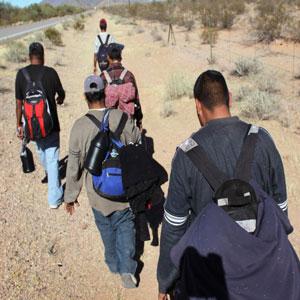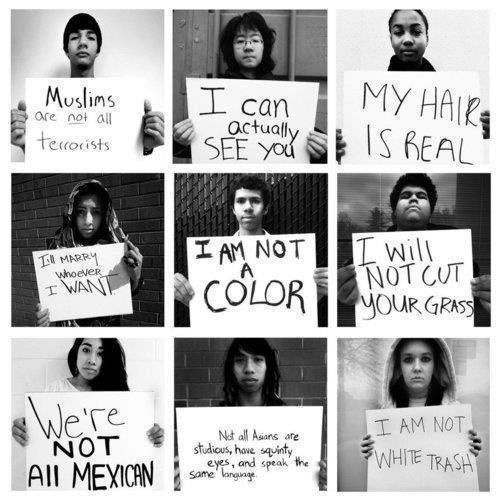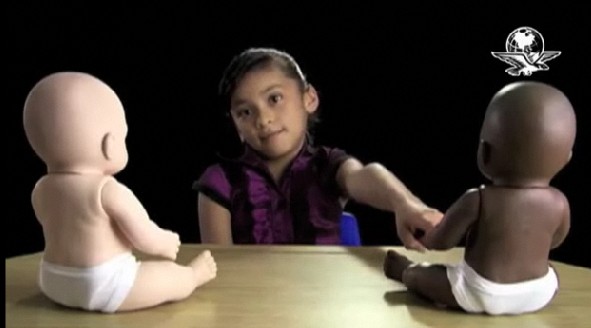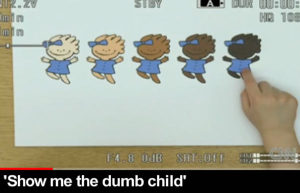
Election and Immigration Reform
March 31, 2012
Use Of Racial Stereotypes
April 6, 2012By Janice S. Ellis, Ph.D., Kansas City, MO –
Kids race and racism, have you had a dialogue about race relations with your kid? No, it isn’t about drugs, the birds and the bees, sex, or bullying, but it’s equally as important. It is the needed dialog about race, about people who are equally as special, just as valued, just as equal concerning mankind, although they do not look like us.
The results of a brand new study on kids race and racism, verify that race is an issue that parents should address with their kids earlier than later. The results are being aired by CNN all week. The findings are a wake-up call, which tells us that the racial divide will not cease by itself.
Kids Race and Racism
The study examines perceptions, beliefs, and attitudes of six-year-olds and thirteen-year olds. Shown the exact same images in a playground setting with both black and white kids, black children had a very distinct impression than white youngsters of who was socializing with whom and the interactions’ meaning.
Overall, black first graders had a confident impression on the play ground perceiving the child that is white and the black kid were friends and that their parents would like it if they had a white buddy. On the other hand, 70 percent of the white kids were negative about what was occurring on the playground and were more inclined to select another white kid as a friend. Kids race and racism.
Dr. Melanie Killen, a distinguished child psychologist and professor at the University of Maryland designed and implemented the study. When asked about different understandings and attitudes found among first-grade grayscale kids, she attributed the source to the different ways parents speak with their children about race, or having any conversation at all.
What Dr. Killen discovered is that African American parents tend to address race directly, and are very early on preparing their children for the world of diversity and also for the world of potential discrimination. They’re definitely talking about what it means to be another race and issues of race and when it matters and when it doesn’t matter. (Source: AC 360? Study: African American Kids More Positive On Race)
By comparison, what Dr. Killen located among white parents is the fact that they frequently are not discussing race at all with their kids because they consider their children are socially colorblind and race is no issue to be addressed. According to Dr. Killen, They [white parents] have this viewpoint that when you talk about race, you are creating trouble.
But it is clear that kids are becoming aware of race really early just as they’re becoming aware of sex. The emptiness created by the dearth of conversations about race, like sex, is filled with daily dosages of subtle and obvious messages from what kids get on a continuous basis from friends, teachers, television, books, etc.
Additionally, a parents quiet about what the family is seeing or an incident on the play ground which clearly has implications and racial or racist overtones often speaks volumes to eyes and those innocent ears, making lasting feelings beyond what we may recognize. Kids, race and racism.
What the study results also show is this racial split among our youngsters increases, gets worse, as their children become teens. Socialization, and the attitudes, beliefs usually are not subtle at all. Teens are open about other brutal facts, and interracial friendships, rejection in regards to race, racism, and race relations.
Perhaps, the most hopeful finding is that in those school settings where you’ve got a great mixture of diverse kids, with interaction and enough time to get acquainted with each other, reveal that there are advancements in recognition and attitudes. Friendships formed in these settings are strong. Kids, race and racism.
Dr. Killen sums it up nicely: There’s nearly nothing as powerful as having a friend of a distinct racial ethnic background to reduce prejudice, to have that encounter that gives you the opportunity to challenge stereotypes.
Camaraderie is excellent. But what about a readiness to have open and honest dialog whenever the opportunity presents itself?
Could we get much further, more rapidly? Could we avoid inflicting so much unnecessary pain and rejection on innocent human beings because of the color of their skin irrespective of what that color is?
Feature Photo Credit: feminspire.com
Edited and Reprinted with Permission of USAonRace.com



